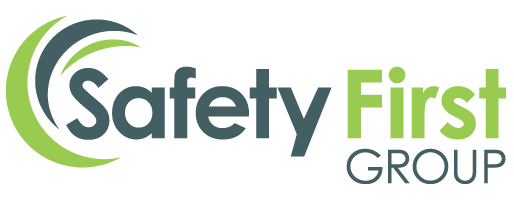It’s Time to Talk Day!
Time to Talk Day is on 1 February 2024. It’s the nation’s biggest mental health conversation. It’s also the month of ‘love’ and ‘caring’ so it’s time to ensure you care for their wellbeing and the environment they work in!
In the UK, over half a million workers suffer from mental-health related conditions (this equates to more than one in seven employees), and circa 70 million working days are lost each year due to poor employee well being. This is a stark contrast to 2016/2017 which saw around 12.1 million lost work days.
The cost to UK employers for lost working days equates to around £2.4bn.
What is Time to Talk Day?
Time to Talk Day is an annual awareness day held at the beginning of February. It’s a day for us all to start a conversation about mental health. Talking about mental health isn’t easy. But a conversation has the power to change lives.
Time to Talk Day is run by Mind and Rethink Mental Illness, in partnership with the Co-op.
How to start a conversation;
- Check in with a friend.
- Pop our posters on your community notice boards.
- Host a coffee and chat in your community centre.
- Put some posters up in your school.
- Run a lunch and learn in your office.
- Text a friend.
Mental health conditions, work and the workplace
This guidance talks generally about work-related stress, but if stress is prolonged it can lead to both physical and mental ill health, including anxiety and depression.
One in four people in the UK will have a mental health problem at some point. While mental health problems are common, most are mild, tend to be short-term and are normally successfully treated, with medication, by a GP.
Mental health is about how we think, feel and behave. Anxiety and depression are the most common mental health problems. They are often a reaction to a difficult life event, such as bereavement, but can also be caused by work-related issues.
Work can also aggravate pre-existing conditions, and problems at work can bring on symptoms or make their effects worse.
Whether work is causing the health issue or aggravating it, employers have a legal responsibility to help their employees. Like any other safety or health hazard at work, work-related mental health issues must be assessed to measure the levels of risk to staff. Where a risk is identified, steps must be taken to remove it or reduce it as far as reasonably practicable.
How can Safety First Help? Mental Health Training
Providing better mental health support in the workplaces can save UK businesses money every year, but more importantly it is proven to improve staff morale and helps to reduce the risk of tragedy (i.e. suicide).
It’s not surprising that workplace stress contributes to around 34% of all mental health problems in the UK, since we spend most of our waking time at work. This really emphasises the importance of training your workforce to respond appropriately to workplace mental well being issues raised in the workplace.
Safety First’s ‘First Aid for Mental Health’ Courses
The Safety First team provides a range of Ofqual regulated, nationally recognised ‘First Aid for Mental Health’ qualifications.
The following awards are available to teams via onsite training, which can be delivered as daytime, twilight, evening or weekend courses.
- Level 1 (RQF) First Aid for Mental
Health Awareness – half day course giving a basic introduction to mental health, suitable for staff at all levels
- Level 2 (RQF) First Aid for Mental Health
One day course suitable for those wishing to act as mental health first aiders, or to complement the skills of physical first aiders
- Level 3 (RQF) Supervising First Aid for Mental Health – two day course suitable for those overseeing mental health arrangements
Contact our team of first aid and mental health experts to find out more about EMF Assessments.
Safety First’s Occupational Health Surveillance
Ensuring you have a healthy and motivated workforce is paramount.
Occupational Health Surveillance is a multi-disciplinary approach to ensuring people are safe and healthy at work. It’s a services to ensure that people are fit for work after an illness or injury, provide support to people in the workplace with any medical conditions or disabilities which may require special equipment and/or workplace adjustments and offer support where needed.
What it involves?
Safety First Group can help with any referrals, health checks or health promotions that you need to run as part of your health & safety at work. These can include;
- Helping you to manage repetitive short and long term sickness absence
- Making sure that you are fully compliant with Health & Safety Executive regulations by offering a full range of health checks for your staff including blood pressure monitoring and lung function and hearing analysis.
- Offering advice on how you can reduce stress in the workplace, as well looking at ways to manage nutrition and weight loss and drug & alcohol support.
- If any of your workforce is involved in heavy lifting, or exposed to dust, chemicals or water we can provide fit-for-work medical assessments based on the workplace environment. This can also include remote workers and for employees who drive their own car for business use.
For more information on our Occupational Health & Safety service visit HERE
